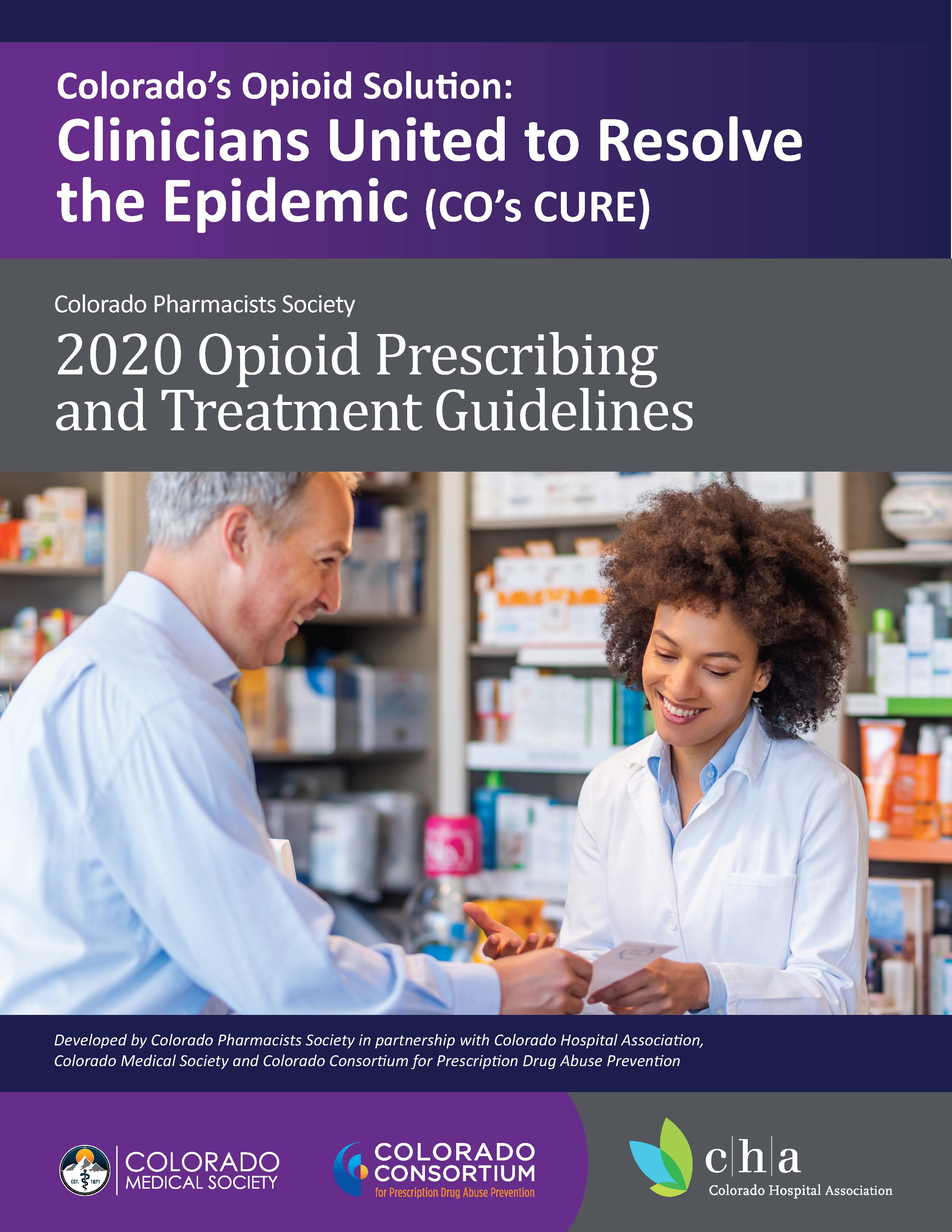Welcome to the CPS Opioid Stewardship Resource webpage!

As pharmacy professionals, we know you continue to be on the front lines of the ongoing opioid epidemic. We hope that the resources found here, including outstanding work done by our own members, will be of use in your day-to-day practice.
COs CURE
(Colorado’s Opioid Solution: Clinicians United to Resolve the Epidemic)

This two-year project brought together fourteen specialty medical societies, Colorado Hospital Association, Colorado Medical Society, and Colorado Consortium for Prescription Drug Abuse Prevention. The outcome of this partnership resulted in the development of seven clinical guidelines that center around the same four pillars – limiting opioid use, using alternatives to opioids (ALTOs) for the treatment of pain, implementing harm reduction strategies, and improving the treatment and referral of patients with Opioid Use Disorder. CO’s CURE brought together diverse clinical specialties, all committed to resolving the opioid epidemic in Colorado through the development of opioid prescribing guidelines that seek to treat patients’ pain more effectively while reducing unnecessary exposure to opioids.
Two of our Colorado Pharmacist Society members, Dr. Sara Wettergreen and Dr. Rachael Duncan, led efforts to create the Colorado Pharmacists Society 2020 Opioid Prescribing and Treatment Guidelines. This resource was collaboratively created as part of the interprofessional effort called Colorado’s Opioid Solution: Clinicians United to Resolve the Epidemic (CO’s CURE). These guidelines are intended for pharmacists across multiple practice settings, to guide and encourage efforts to target the opioid epidemic in Colorado.
Colorado MAT (Colorado Medication-Assisted Treatment)
Inpatient Guides
Current involvement/efforts/affiliations
Relevant Colorado Legislation
Senate Bill
House Bill
- House Bill 18-1007 Substance Use Disorder Payment and Coverage: The bill authorizes a pharmacy that entered into a collaborative pharmacy practice agreement to receive an enhanced dispensing fee for the administration of all injectable opioid or non-opioid antagonist medications that are approved by FDA.
- House Bill 20-1065 Harm Reduction Substance Use Disorders: The bill requires a pharmacist to notify the patient who is receiving an opioid prescription order about the availability of an opioid antagonist.
- House Bill 21-1276 Prevention of Opioid Use Disorders: The bill requires prescribers to have limited supply of a benzodiazepines, that a prescriber may prescribe a patient who has not had a prescription for a benzodiazepine in the 12 months, except for benzodiazepines prescribed to treat specific disorders or conditions.
- House Bill 22-1115 Prescription Drug Monitoring Program: The bill allows a pharmacist who is registered with the program to authorize an unlimited number of designees to access the program on the practitioner’s or pharmacist’s behalf if the designees meet the eligibility criteria and to register those designees in a group user account.
- House Bill 22-1326 Fentanyl Accountability and Prevention: The bill introduces the efforts to prevent fentanyl overdose in Colorado. CPS is working to raise awareness to ensure patient access to free naloxone.
State Resources:
National Resources:
CDC
Department of Health and Human Services
National Harm Reduction Coalition
SAMHSA
|



